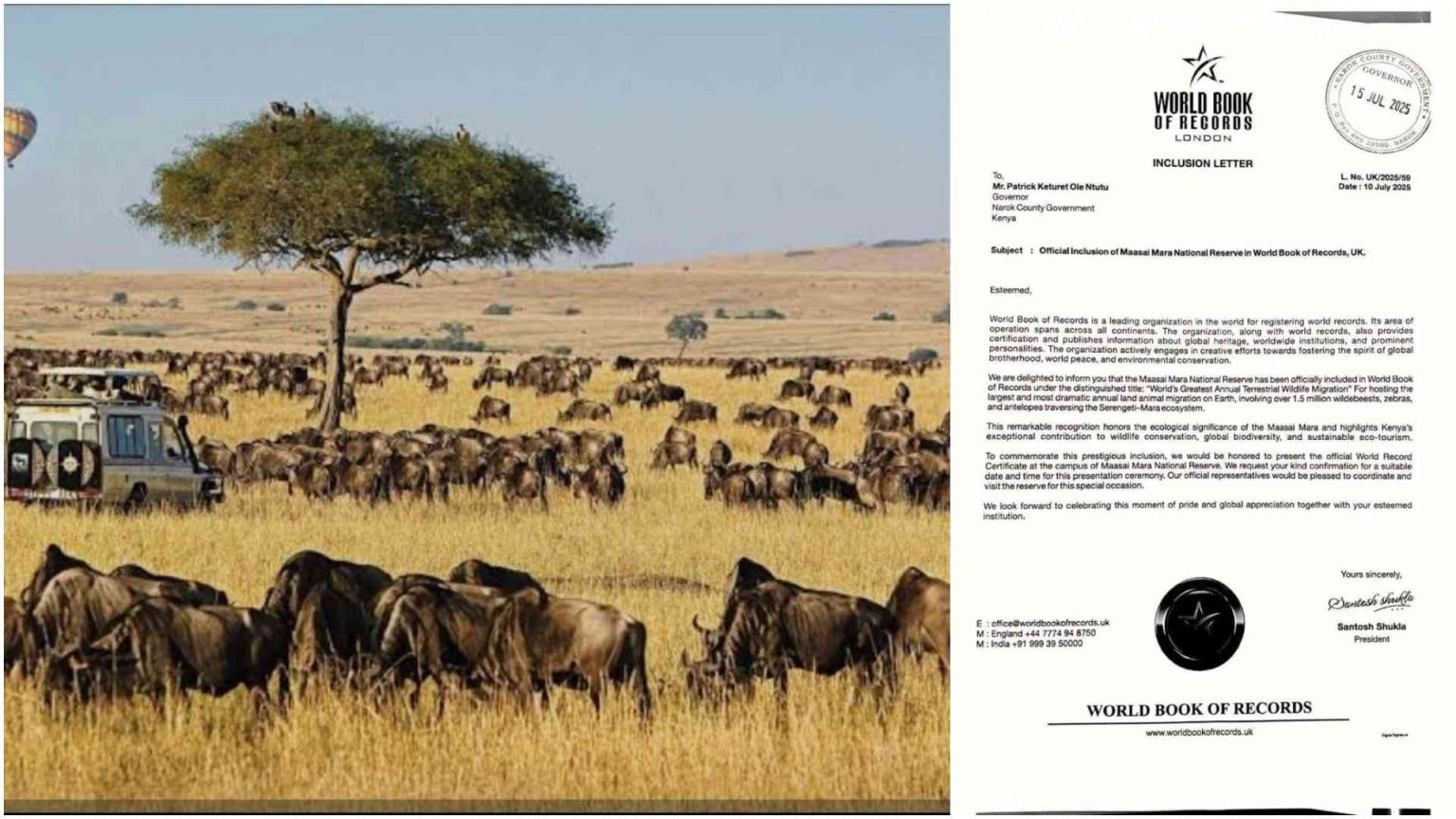Wildebeests in Maasai Mara National Reserve [Peter Muiruri/Standard]
In a historic moment for Kenya’s tourism and conservation sectors, the Maasai Mara National Reserve has been officially recognized by the World Book of Records, UK, as the site of the world’s greatest annual terrestrial wildlife migration.
The announcement by Tourism Cabinet Secretary Rebecca Miano marked a global accolade for the iconic reserve.
“To our cherished tourists and wildlife enthusiasts from around the world: thank you for making the Maasai Mara your destination of choice. Your love for this iconic reserve continues to inspire us to protect and promote its unparalleled beauty,” said CS Miano.
“This global accolade reaffirms what we have always known: the Maasai Mara is truly a natural wonder of the world,” she added, in a statement accompanied by images of the certificate presentation.
The recognition was formalized on July 15, 2025, with the presentation of an official certificate, further cementing the Maasai Mara’s status as a natural wonder.
The Maasai Mara is renowned for hosting over 1.5 million wildebeests, zebras, and antelopes during the awe-inspiring annual migration across the Serengeti-Mara ecosystem.
This spectacular ecological phenomenon, in which massive herds traverse treacherous rivers and vast plains, continues to draw tourists and wildlife enthusiasts from around the world.
MAASAI MARA NATIONAL RESERVE GETS INTO THE WORLD BOOK OF RECORDS, UK
Through the able leadership of Tourism Ambassador 001 H.E President @WilliamsRuto I am thrilled to announce the official inclusion of the Maasai Mara National Reserve in the World Book of Records, UK, as the… pic.twitter.com/Mw2EyNwDiW
— CS Rebecca Miano, EGH (@rebecca_miano) July 16, 2025
This fete is expected to elevate its global profile and support the government’s efforts to attract millions of tourists annually.
“This remarkable recognition honors the ecological significance of the Maasai Mara and highlights Kenya’s exceptional contribution to wildlife conservation and sustainable eco-tourism,” read the inclusion letter in part.
This comes just a month after Kenya Wildlife Service (KWS) proposed a significant increase in park entry charges, aimed at bridging a substantial annual funding deficit cited at Sh12 billion.
These proposed hikes, some of which could see fees rise by 50% to over 200%, are the first comprehensive review in 18 years and are intended to fund conservation efforts, improve park infrastructure, and reduce reliance on government funding.
However, these proposed increases have been met with strong opposition from tourism stakeholders, including tour operators, hoteliers, and domestic tourism associations.
They argue that such arbitrary and steep fee hikes risk making Kenya an uncompetitive and unaffordable safari destination, potentially deterring both international and domestic tourists.
Concerns have also been raised about the timing, given that the industry is still recovering from past challenges, and the potential for a significant drop in visitor numbers, particularly among price-sensitive domestic tourists, which could ultimately hurt the broader tourism economy.
